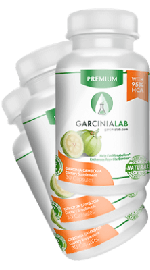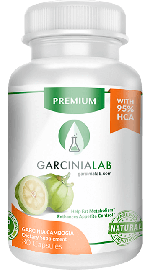
Is Garcinia Cambogia’s Hydrochloric Acid HCA the Cure to Kidney Stones?
Kidney stones are small mineral pellets that form in the kidneys and could be found in the urinary tract. Frequently painful, the National Institutes of Health estimates that more than 300,000 patients visit emergency rooms for kidney stones each year in the United States. Unfortunately very little to nothing has changed in preventative treatments for kidney stones in the past 30 years. Most patients with this medical issue are instructed to drink water, reduce the amount of foods high in oxalates such as leafy green vegetables and nuts in their diet, and take citrate (CA) in the form of a potassium citrate supplement to slow crystal growth. For anyone who has ever experienced the pain and agony of dealing with kidney stones may have thought, "Wouldn't it be great if there was a solution to something that can prevent kidney stones and all the pain and suffering?"
HCA From the Garcinia Cambogia: Helps Kidney Stone Prevention from an over the counter supplement
The study, published in Nature in mid-2016, described the development of the kidney stone supplement, an extract of a compound called HCA (Hydroxycitric acid) from the Asian Garcinia Cambogia fruit, now sold in supplement form in 95% HCA Garcinia Cambogia. With other health benefits such as cholesterol reduction, weight loss and energy boost, Garcinia Cambogia serves as a multi-tasking supplement and surprisingly hasn’t been known to many until recently. As is so often the case in science, time is of such an essence to for researchers come up with such a remedy or breakthrough from either medication or natural over the counter supplements and ingredients. In this instance, a dietary supplement called Garcinia Cambogia is now known to dissolve the little kidney stones before wreaking havoc in your system. Researchers at the University of Houston (UH) are calling Garcinia Cambogia a possible "prevention tool." HCA, which is chemically similar to potassium citrate, is found in several tropical plants including garcinia cambogia, commonly known as Malabar tamarind. Researchers found that the HCA in Garcinia Cambogia inhibits growth of the crystals by binding to them and that even in very small concentrations it can actually dissolve those crystals and clearing the system. Assistant professor of chemical and petroleum engineering at Pitt’s Swanson School of Engineering labels the recent finding of how HCA in Garcinia Cambogia helps kidney stones is very exciting “to identify a molecular-level mechanism under which calcium oxalate grows and degrades in its natural environment,” said Giannis Mpourmpakis, “Eventually, this will help us control the crystal’s life cycle.”
How Do Kidney Stones Form in the Body?
Kidney stones are made up of calcium oxylate crystals. These minerals make up the bulk deposits that form in the kidneys and cause problem when lodged in your urinary tract and won't budge. One or more may restrict the flow of urine causing another level of discomfort. According to MedicineNet.com: "The calcium oxalate crystals that are the most common component of kidney stones, [are the] mineral deposits that form inside the kidneys. They may get stuck in the urinary tract, blocking urination and causing great pain."1 If the stone happens to be small, it may pass through your urinary tract unnoticed. But large kidney stones that are large enough not to pass interrupt the passage flow. Daily Mail reported that in Hungary, the largest kidney stone ever recorded weighed nearly 2.5 pounds.2 Needless to say, larger stones require surgical removal. The best prevention from an all-natural supplement to help prevention of kidney stones is Garcinia Cambogia. The all-natural supplement comes in a boosting 95% HCA which is plentiful if you’d like to fight off the calcium crystals building up in your system.
Kidney Stone Symptoms
Kidney stones are the tube that connects your kidney and bladder, called the ureter. Being blocked by calcium based stones this can cause: A persistent urge to urinate Fever and chills (indicating infection) Bloody and/or cloudy urine Pain when urinating Episodes of pain lasting 20 minutes to an hour Nausea and/or vomiting Pain radiating down your side and back to your groin and lower abdomen
References




